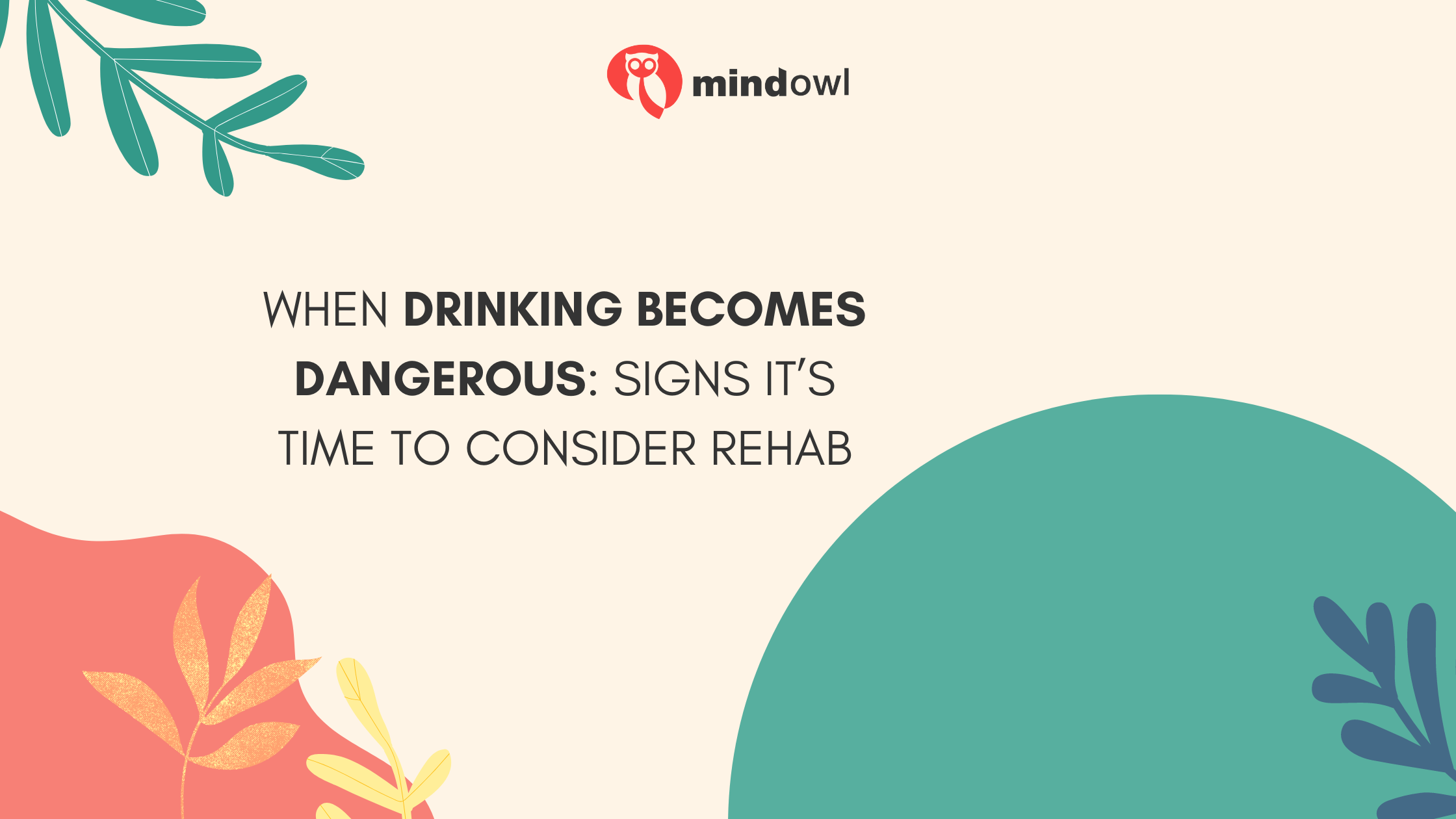Alcohol is linked to social events, but excessive drinking can have severe consequences. Recognizing the point at which it turns perilous is paramount. This post discusses signs it’s time for professional help: behavior changes, increased drinking, neglecting duties, and health problems.

Changes in Social Behavior
A clear sign that alcohol consumption might be becoming problematic is a shift in your social behavior. If you find yourself avoiding gatherings where alcohol isn’t involved or pulling away from friends and family, this could be a red flag. You might also notice that you’re spending more time with people who drink heavily, reinforcing your drinking habits. This change in social circles often indicates a deeper reliance on alcohol as a means of coping or socializing. If you want to find the right rehab center, check itstimeforrehab.com or seek advice from professionals who can help you find suitable treatment options. Addressing these social changes early can be crucial in preventing further escalation of alcohol dependence.
Escalation of Drinking Patterns
An increase in drinking frequency or quantity is another sign that your alcohol use might be becoming dangerous. If you find yourself drinking more than you did previously or needing larger amounts of alcohol to achieve the same level of inebriation, this can indicate a developing dependence. Escalation in drinking patterns can also manifest in the need to drink in the morning or to avoid withdrawal symptoms, which signifies that alcohol has taken a more central role in your life. Monitor your drinking habits and seek help if you notice these changes. Professional guidance can assist in evaluating the severity of the issue and in creating a plan for reducing or eliminating alcohol consumption. An increase in drinking is often a clear signal that intervention is needed to prevent further complications.

Image source: https://pixabay.com/photos/man-alcohol-hangover-428392/
Neglect of Responsibilities
When alcohol consumption starts affecting your ability to fulfill daily responsibilities, it is a major concern. Neglecting work obligations, academic performance, or personal duties due to excessive drinking can lead to significant life disruptions. For example, you might find yourself consistently missing work, failing to complete assignments, or neglecting household chores. These signs reflect how alcohol use is impairing your ability to manage essential aspects of life. Addressing these issues early can help prevent more severe consequences. Professional help can provide strategies to regain control and balance, improving your ability to meet responsibilities and reduce the negative impacts of alcohol use on your life.
Physical and Mental Health Issues
Excessive alcohol use can lead to a wide range of physical and mental health problems. Physical symptoms such as frequent hangovers, liver damage, gastrointestinal issues, and chronic fatigue are common among heavy drinkers. Mental health issues, including anxiety, depression, and cognitive impairments, can also arise as a result of alcohol abuse. If you are experiencing any of these health problems, seek medical attention. Consulting a healthcare provider about these symptoms and considering rehab can help address both the physical and mental health aspects of alcohol dependence. Treatment can provide support for managing these health issues and guide you toward recovery.
Recognizing the signs that drinking has become dangerous is the first step toward addressing alcohol dependence. If you notice changes in social behavior, escalating drinking patterns, neglect of responsibilities, or physical and mental health issues, it may be time to consider rehab. Professional intervention can provide the necessary support and resources to overcome alcohol dependence and improve overall quality of life.
MindOwl Founder – My own struggles in life have led me to this path of understanding the human condition. I graduated with a bachelor’s degree in philosophy before completing a master’s degree in psychology at Regent’s University London. I then completed a postgraduate diploma in philosophical counselling before being trained in ACT (Acceptance and commitment therapy).
I’ve spent the last eight years studying the encounter of meditative practices with modern psychology.

